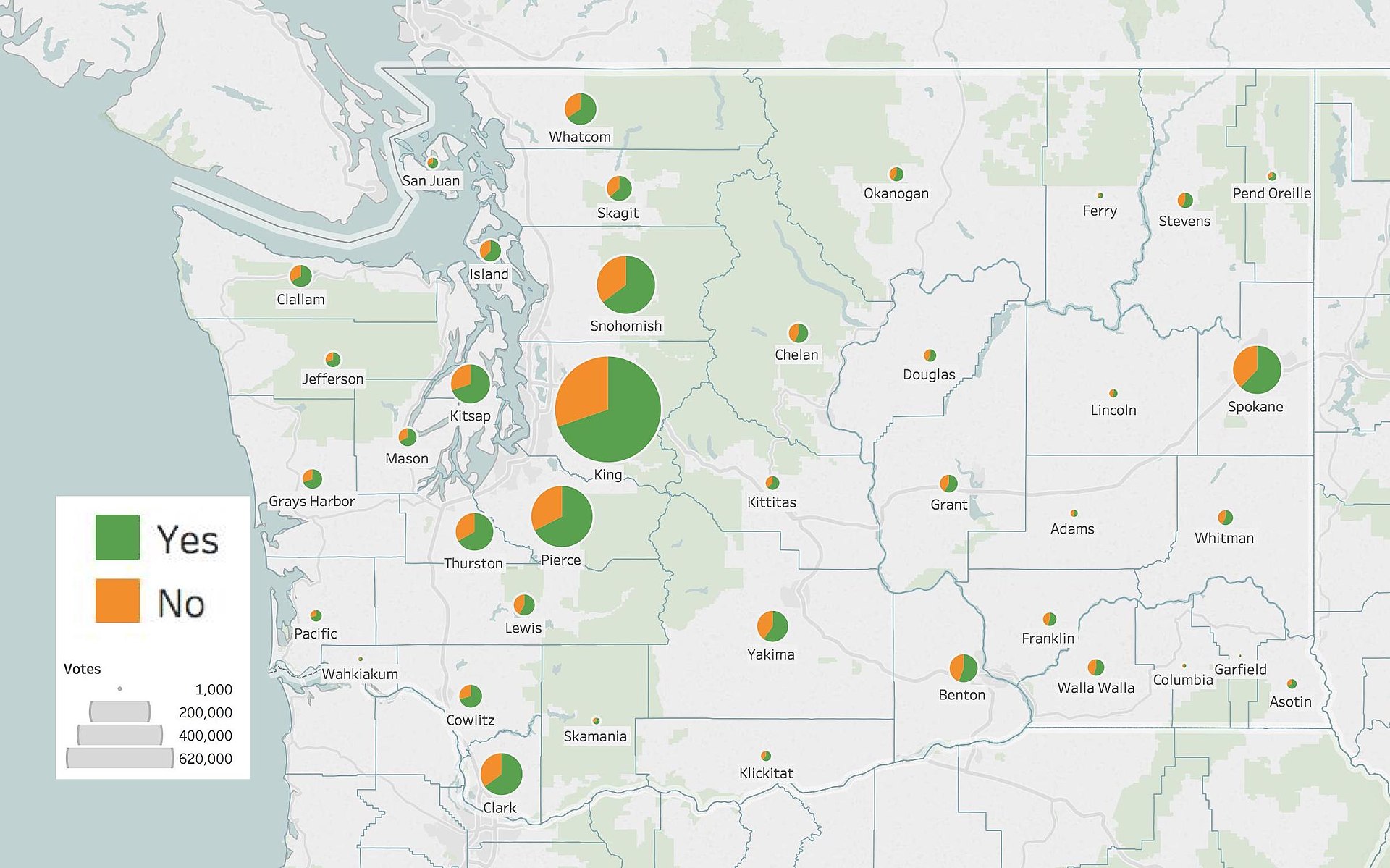1997: Initiative 692 Washington State Decriminalizes Medical Cannabis
Two separate ballot initiatives were filed in Washington State to decriminalize medical marijuana in the in 1997. Both were sponsored by physician Rob Killian. Initiative 685, which appeared on the 1997 general ballot, would have allowed doctors to prescribe any Schedule I drug, if scientific research supported medical use. It would have also paroled drug prisoners. The initiative failed, with 60.4% of voters rejecting it. The following year, Initiative 692 was filed, which was limited only to decriminalizing medical marijuana. The initiative was endorsed by The Seattle Times, marking one of the first times a major newspaper in the U.S. backed a medical marijuana initiative. I-692 was approved by a margin of 59.0% to 41.0%.
The passage of I-692 allowed physicians to recommend medical marijuana to patients with terminal or debilitating illnesses including: "chemotherapy-related nausea and vomiting in cancer patients; AIDS wasting syndrome; severe muscle spasms associated with multiple sclerosis and other spasticity disorders; epilepsy; acute or chronic glaucoma; and some forms of intractable pain." The initiative also allowed the state to add new illnesses to the list as necessary. Qualifying patients with a note from their doctor were permitted to possess a sixty-day supply of cannabis, which was later defined to be "twenty-four ounces of usable marijuana and no more than fifteen plants."
Although the law did not explicitly allow dispensaries, many were established and often went ignored by law enforcement. By 2011, there were around 75 storefront dispensaries open in Seattle and 55 in Spokane. That same year, the state legislature passed an overhaul of medical marijuana laws, which would have created a system of state-licensed growers, processors and dispensaries. Governor Christine Gregoire, however, vetoed most of the new legislation, explaining that she would "not subject state employees to federal prosecution."
